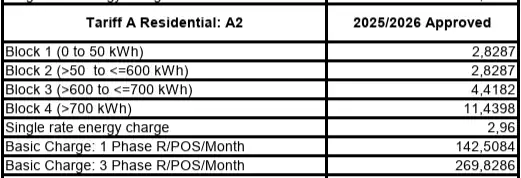Whether you are building a career, starting a family, or just trying to stay afloat, it is tempting to cut corners and make money mistakes.
Remember the saying “penny wise, pound foolish”? This means that some of your money mistakes may seem smart at first, but could cost you a lot later, especially if you are in your late twenties and early thirties when every financial decision starts to carry more weight.
Ester Ochse, product head at FNB Integrated Advice, says some habits seem responsible on the surface but are financially short-sighted. “These penny-wise and pound-foolish decisions can quietly hold you back from long-term stability.”
She calls attention to these five common traps and tells us how to avoid them:
1. Delaying retirement savings because ‘you are still young and think you have time’
Postponing your retirement planning is one of the most expensive mistakes you can make. “The earlier you start with the little you have, the better in the long haul. Even small, consistent contributions now will benefit from compound growth over decades.”
You can use tools and apps that offer a snapshot of your finances and see where you can start trimming wasteful spending to free up savings and allocate them to longer-term rewarding decisions.
ALSO READ: Some of the worst financial mistakes, and how to avoid them
2. Using your emergency fund to settle debt
Clearing debt is important, but Ochse warns that wiping out your entire emergency buffer to do so can backfire.
“It leaves you exposed to the next unexpected expense and you will likely fall back into debt again. Consult with your bank to help you map out a strategy that will allow you to pay off your debt steadily while maintaining a financial safety net.”
3. Cancelling insurance to save money
Skipping your car, home, or device insurance payments to reduce your monthly costs can have an adverse effect.
“One unexpected incident, like theft or accident, could put you into deep debt or wipe out your cash flow,” Ochse warns.
4. Saving whatever is left at month-end
If your savings rely on leftover money, you will never build consistency. Rather pay yourself first by automating a portion of your income into savings before you even start spending.
ALSO READ: Money mistakes and successes of millennial parents
5. DIY investing without guidance
Jumping into investments based on online hype or peer pressure can do more harm than good. While social media can raise awareness, it is important to take the time to do your homework on those investments and to be discerning about where financial advice comes from.
How do you ensure you stay safe from money mistakes?
Ochse has the following advice:
- Always consult a registered financial institution or adviser for information.
- Only take advice from qualified professionals or verified financial experts.
- And remember, if an investment opportunity sounds too good to be true, it probably is.
She points out that your mindset matters. “While tools and products can support good behaviour, the real shift happens in your mindset and that is where financial education plays a crucial role.
“Financial wellness is about making better decisions more consistently,” Dhashni Naidoo, programme manager at FNB Consumer Education, says. “The earlier you start being intentional with your money, even if it is just with small, manageable amounts, the better your future options will be.
“This National Savings Month, it is worth reflecting on whether your financial habits are moving you closer to the future that you want, even in the face of rising costs and everyday pressures. The goal is to build a life that is not defined by your past setbacks, but by the choices you make going forward.”














